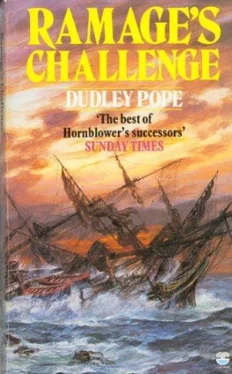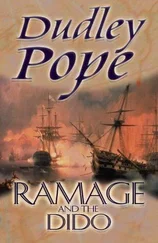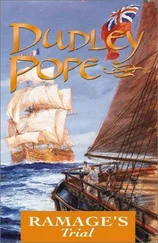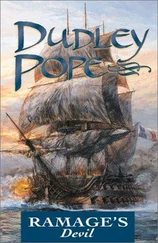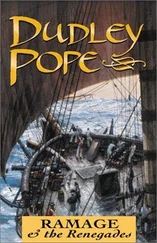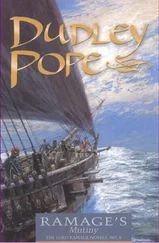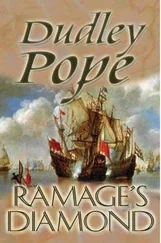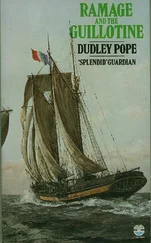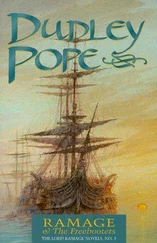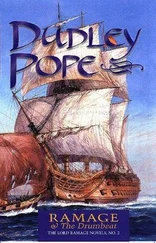"Don't keep on blaming yourself, sir," Southwick said, realizing the mood: when the captain's deep-set brown eyes became unfocused, the normally hard line of the jaw was slack, the skin was taut over that slightly hooked nose, the hands were clasped behind the back, knuckles white - then Captain Ramage's thoughts were hundreds of miles away, reliving some episode concerning her Ladyship or the Marchesa. It was understandable, but all the worry in the world would not restore either of them. And at this moment it was better for the captain to worry about those extraordinary orders from the Admiralty.
Southwick considered they were extraordinary orders. Parole was a touchy business. British officers held as prisoners of war in France (and French officer prisoners in England) were usually offered parole, which meant giving your word of honour that you would not escape. In return, you were allowed either to lodge (at your own expense!) close by, or be allowed out from the actual prison each day.
The Admiralty viewed parole very seriously - as far as British officers were concerned. If a British officer gave the French his parole and in return received a degree of liberty, then woe betide him if he used the opportunity to escape and reach England.
Almost the first question asked an escaped British naval officer on reaching England was whether he had given his parole. If he had, then he was sent back to France, where he would have to wait his turn to be exchanged in the normal way for a French officer held prisoner in England.
It occurred to Southwick that Bonaparte must laugh at the quaint and punctilious British, because no one had ever heard of the French sending back a French officer who had broken his parole and escaped.
By the same token, he thought contemptuously, as far as he knew no British consul ever considered that a Briton abroad could be right in an argument with foreign authority (unless, of course, the person involved could influence the consul's career). By and large - according to Mr Ramage - all Britons should avoid British consulates or embassies if they ever needed help: the hirelings of His Majesty's Secretary of State for the Foreign Department were chosen for their vapidity and their dancing and conversational skills, not their brains (which, if discovered Mr Ramage maintained, could wreck a diplomat's career).
So what happens, Southwick wondered, if we get to Pitigliano and find that two admirals, three generals, four colonels and five peers of the realm have given their parole? It is all very well for the Admiralty to say they must be left behind, but what happens when these people's friends hear about it in England? Once again the government would be looking for a scapegoat, since no government could be wrong, and no politician would ever risk losing a vote . . .
"Who else is to blame if not me?" Ramage asked quietly, seeming to have come back from a long journey.
Southwick's sniff implied that the answer was so obvious he was having difficulty in remaining patient. "Sir, have you ever considered the answer you'd get if you asked either lady if given the opportunity she'd change anything?"
"That's absurd," Ramage snapped. "No one chooses death."
Southwick gave a shrug sufficiently violent to be obvious in spite of the newly tarred oilskins encasing him. "Supposing you'd been killed rescuing Lady Sarah in the Murex, or the Marchesa in that affair with the Post Office packet - would you have changed anything that went earlier?"
"That's not at all the same thing," Ramage said angrily. "I was doing my duty. If I am killed in the process, that's too bad."
"And that's just what both ladies would say. The Marchesa felt it her duty to go back to her people in the Kingdom of Volterra, even though you and your father warned her of the risks from Bonaparte's police. Lady Sarah was, I'm absolutely sure, proud of having helped you capture the Murex and escape from Brest: that was her duty - to her husband and to her country. Noblesse oblige, they call it, sir."
"You talk up a gale of wind," Ramage said bitterly, "but it doesn't bring 'em back."
Southwick looked at him squarely, the grandfather talking to his grandson. "Nor does moping."
Finally Ramage nodded. He glanced across at the feathers on one of the windvanes. "If those men are steering the right course, the wind is starting to veer."
A steady céruse gave the Calypso a brisk beat up to Cape Carbonara, the south-eastern tip of Sardinia, and then once round it the frigate was able to ease sheets and steer northward along its east coast, ignoring the watch towers perched on the cliffs.
Because she was French built, the Calypso would almost certainly be identified as a French national ship by the thickheaded lookouts, and in any case to most of them ships with more than one mast were the same. A single frigate was therefore unlikely to cause an alarm: her very course and obvious destination - Leghorn or Genoa on the mainland, Porto Vecchio or Bastia in Corsica - made it obvious that her voyage was routine.
With the sky clearing and the Calypso's bow not shouldering up spray, the frigate now looked more like a laundry than a ship o' war. Ramage had given permission for lines to be rigged so the men could hang up their wet clothes. The sailmaker had carefully unrolled a bolt of canvas, one end of which had been soaked by a random deck leak, and draped it across three guns because, left in its rack, the cloth would breed mildew on a hot day.
Ramage had read the Admiralty's secret orders once again, reflected on parole, which had concerned Southwick (and realized that if all the prisoners had given their parole none could be rescued and the Calypsos would have risked their lives for nothing), and then settled down with pen and paper for some mapmaking.
Pitigliano. Yes, it was easy to sketch a map from memory showing the section of the Italian mainland between the coast and Pitigliano, and the towns (most of them really large villages) between: Manciano, with the turning north to Saturnia and its sulphur baths (much favoured by the Romans, and the Etruscans before them), and which might have given its name to Saturnalia; and Osteria and Farnese and Valentano to the south. And then, he remembered, Marsiliana, Sgrillozzo and la Sgrilla, hamlets on the road before one reached Manciano.
Scale, that was the problem: he was trying to remember how many miles it had been from Orbetello on the coast to Manciano, and then on to Pitigliano, while on a boyhood journey to Orvieto. His strongest memories were white dust and thirst. . . Still, Pitigliano was about thirty miles south of Monte Amiata, which was by far the highest mountain around, and perhaps a dozen miles from the foothills of Mount Elmo, so in daylight there were some unmistakable reference points.
No problem, signore - except that Pitigliano must also be about thirty miles from the coast... miles covered presumably by French mounted patrols as well as gendarmes and Italian farmers and villagers who might consider it wiser to help the French (who, after all, had been in occupation for several years) rather than a crowd of passing Englishmen who had done nothing to help them ...
But in what disguise would the Calypsos be? A troupe of buskers, tumbling to the tunes of "Blower" Martin's flute? The problem comprised two halves - going and coming back. Going, they would be a group of the Calypso's officers and ship's company, in some sort of disguise. Coming back (assuming parole had caused no problems) the Calypsos would be escorting freed hostages of unknown rank, age and physical condition. How could they be disguised? A crowd of widows going to early mass, rigged out in black?
The captain of the Calypso frigate might grumble that the Admiralty was picking on him, but in fairness to Their Lordships (how one hated being fair to the Board) he was an obvious choice. He spoke fluent Italian, thanks to a childhood spent in Italy. And he knew much of Tuscany quite well - not that Their Lordships would consider that: as far as they were concerned Pitigliano could be anywhere between Genoa and Venice, Milan and Naples or Bergamo and Bari. Ramage spoke Italian and knew the coast: that was all that mattered. Oh yes, and he had on board as a midshipman the nephew of that Marchesa who was the ruler of Volterra - the one who is missing . . . Ramage could picture the conversation round the long table in the boardroom: St Vincent nodding to save words, Captain Markham (who had intervened on the Board's behalf at that travesty of a court-martial), another one or two members of the Board to make up a quorum, and Evan Nepean, the Board secretary, busy taking the minutes.
Читать дальше
